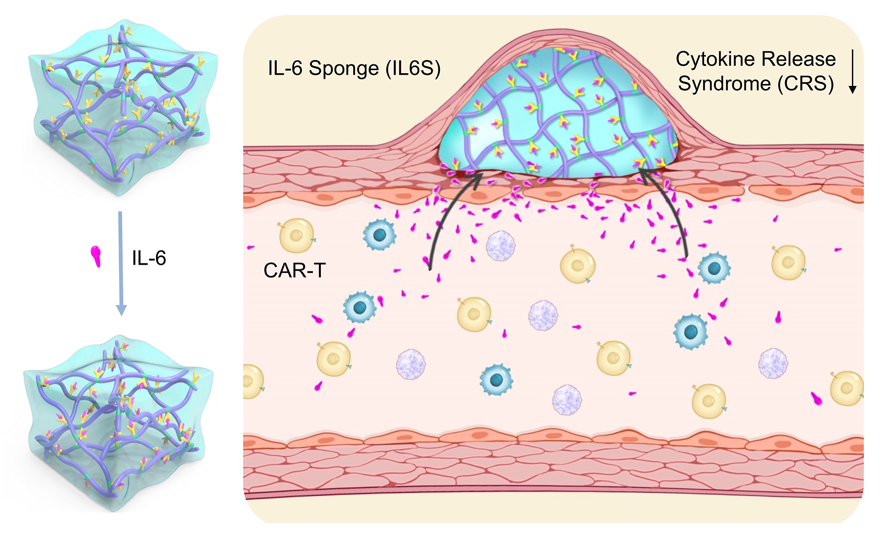
CAR-T immunotherapy has revolutionized the treatment of hematological malignancies, particularly B-cell lymphoma. However, while CAR-T cells effectively kill tumor, they can trigger the release of large quantities of inflammatory cytokines from immune cells, particularly macrophages. These excessive cytokines can lead to severe and life-threatening symptoms including high fever, hypotension, weight loss, vascular leakage, organ failure or even death. These symptoms induced by CAR-T cells are known as cytokine release syndrome (CRS) or inflammation storm.
CRS is frequent occurrence with CAR-T cell therapy, yet its precise diagnosis, timing, and severity assessment have proven to be challenging due to the absence of specific physiological index. Current intervention measures are generally given after CRS occurrence. Although the timely treatment can alleviate CAR-T induced CRS, some symptoms that have already occurred like the vascular leakage can cause irreversible damage to patients.
The interleukin-6 (IL-6) blockade monoclonal antibody still faces some issues including systemic toxicity and short duration of effect. And IL-6 molecules themselves play important physiological roles under normal conditions such as promoting B-cell proliferation. Therefore, injecting blockade antibodies in advance or when CRS doesn’t occur can affect the normal levels of IL-6 and related functions.
Based on CRS characteristics and IL-6 antibody issues, the researchers proposed the “IL-6 sponge (IL6S)” strategy for the prevention of CAR-T cell-induced CRS. IL-6 antibody was chemically linked to a temperature-sensitive hydrogel. The obtained IL-6 antibody-hydrogel conjugate (IL-6 sponge) was subcutaneously injected before CAR-T cells infusion. When CAR-T cells induced an inflammatory cytokine release storm, the injected IL-6 sponge could adsorb IL-6 in real-time and controllable manner, thereby preventing CRS-related symptoms.
By adjusting the antibody-to-hydrogel ratio, the subcutaneously injected IL-6 sponge did not affect the normal levels of IL-6. It only adsorbed IL-6 when its concentration began to rise or exceeded normal levels. This responsive adsorption could not only simplify disease assessment but also convert CRS management from traditional blockade alleviation to effective prevention.
Besides, the researchers validated the therapeutic effects of the IL-6 sponge on various CAR-T induced CRS models. The IL-6 sponge effectively suppressed the elevation of various inflammatory cytokines, greatly alleviated CRS-related symptoms, improved the survival rate of animal model, and did not affect the antitumor efficacy of CAR-T cells in vivo, demonstrating its excellent safety performance.

Schematic diagram of IL-6 sponge in prevention of CAR-T induced cytokine release syndrome. (Image by LIANG Xingjie et al.)

86-10-68597521 (day)
86-10-68597289 (night)

52 Sanlihe Rd., Xicheng District,
Beijing, China (100864)

